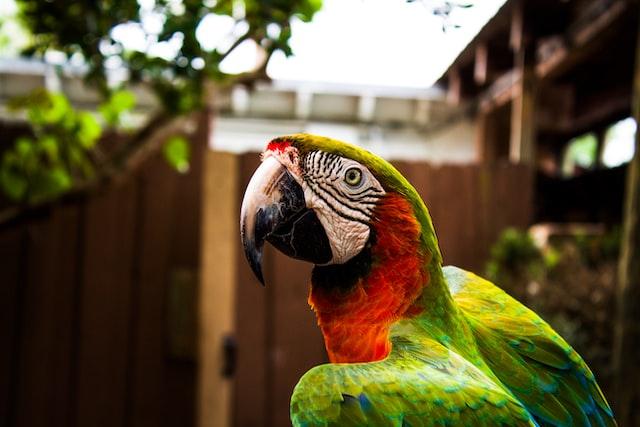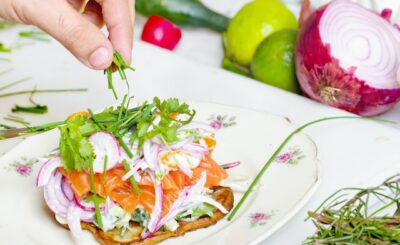Table of Contents
When you are considering getting a parrot, it’s important to understand what you are doing. Parrots are long-lived, messy, and loud. Parrots are intelligent and require socialization and interaction. Your parrot may be large, especially if it is a macaw, and require a significant space investment. You will also need to buy a lot of items for its cage, enrichment, and care. While this is one of the fun parts of having a pet parrot, it can also be expensive. Here are some of the things you will need to purchase for your new pet.
Perches
Parrots and all pet birds need several perches in their cages. Since this is where they will spend most of their time, they must be of the correct types and sizes. Perches made of dowels or other uniform materials are the worst choice, as birds need perches that mimic nature. Consider finding bare, smooth branches for your perches. Whatever you use, they need to be of varying sizes, with some larger and some smaller. Curved and branching perches are also good. These varying perch areas allow a bird’s foot to be stretched and used in different ways, which is necessary to maintain good foot health.
Also, consider the placement of the perches. You don’t want them to be directly over food or water bowls. You also want some open space in the cage where your bird can fly or stretch his wings. Locate the perches at different heights and areas of the cage.
Ropes
Ropes make great perches and climbing toys. They have an unusual texture, which is good for the bird’s feet and requires them to grasp differently. Parrots love climbing and sometimes hang upside down, so ropes are good for both exercise and entertainment. If you have room in your cage, consider adding a few rope perches or ladders.
Food Bowls
What size and kind of food bowl you need will depend on your bird’s dietary needs and what kind of bird it is. Food bowls should be cleaned once or twice a day. If your bird eats both fresh food and prepared mixes, consider feeding in two separate bowls. This will prevent the seeds from absorbing moisture from the fresh food and it will last longer.
Some bird feeders have hoods or holes which require the bird to put its head inside. These are designed to prevent the bird from spilling or scattering the food, but some birds won’t eat from this kind of feeder because they feel unsafe.
Water
Parrots should always have access to clean, fresh water. Your bird’s water needs to be cleaned several times a day as it can get messy quickly. Whether you use a water bottle or bowl (or both) is a matter of preference. Your bird may prefer one style over another.
Cuttlebone
Cuttlebones are hard oval-shaped products that come from the inside of cuttlefish. When cuttlefish are farmed for food, the internal structure is collected as a by-product and this is the part known as a cuttlebone. This part is actually not made of bone but is an internal shell. It is sold as a supplement for birds.
Cuttlebone helps trim birds’ beaks so they won’t get overgrown and long. Cuttlebone also provides a variety of different minerals that your bird needs. Calcium is especially important, and birds can get the calcium they need from gnawing on cuttlebone.
Enrichment Items
All parrots need enrichment items, and they need a lot of them. Parrots are among the most intelligent of all animals and will get bored, loud, and irritable if they are not given appropriate stimulation. Enrichment items include toys, climbing areas, and puzzles. Some people even read books to their birds! It’s best if you have a lot of different enrichment items and change them out regularly to help your bird stay interested and keep it from becoming bored.
Birds also need daily enrichment through interaction and social time. They need to play with, talk to, and interact with their people and any other birds you have. Training is one of the best ways to interact with your parrot, and they love learning tricks and working on puzzles.
Cage Liners
Cage liners are used in the bottom of the cage to make cleaning easier. You can buy cage liners made specifically for this purpose, or you can use items like puppy pads, newspapers, or paper towels. If you layer these papers in the bottom of the cage, daily maintenance is as easy as peeling up the top layer once a day. Shredded paper and wood chips aren’t recommended.
UV Lighting
Birds need UV light to produce vitamin D, just like people. The best way to get UV light is to take your bird outside for a few minutes each day. Even a few times a week is beneficial. During the winter or if you cannot take your parrot outside, you can supplement with a UV light. The selection, placement, and timing of the light are very important, and too much UV exposure, whether it’s too long or too strong of light, for example, can be harmful to the bird and can cause blindness.
Bird Bathing Area
Most birds need to bathe sometimes. Some species enjoy splashing in a bath, and they will make quite a mess so it’s best if this is done somewhere outside of the cage, like in a bathtub or back porch. Some birds enjoy being sprayed with water from a hand sprayer or mister, while others actually accompany their owners into the shower. Whatever method your bird prefers, make sure they have regular access to bathing water.
Night Cover
Birds are diurnal, like people, and need a dark period in which to sleep. Some birds prefer a cover on their cage at night, so they have a darker enclosure. This is especially useful if they are in a room where there is light exposure all night long, or where people are active past the bird’s usual bedtime.
Don’t use the cover as punishment or to quiet a loud bird, as this can be traumatic and confusing for the bird. The cover is best used only as a sleep aid.
Areas for Play Out of the Cage
Parrots are social and active animals and should have daily playtime outside their cage. This allows them time to fly, exercise, stretch, and climb. Consider having perches and climbing areas outside of the cage where your bird can play and feel at home. Many people take their parrots outside in their gardens to stretch their wings, get sunshine, and enjoy an interesting new view.
Conclusion
Having a parrot for a pet is a significant commitment in time, money, and space. Your parrot will live for a very long time, will get bonded to you, and will require a lot of interaction and stimulation. They can make wonderful companions, but owning a parrot is a commitment that should be carefully thought through before a decision is made.







